Welcome to the 2022 Symposium program guide for Thursday 23 June 2022. Join us for a series of papers ranging from Digital Storytelling, to Animal Futures, to Speculative Fiction and a broad spectrum of other topics. Listen to a keynote address by internationally-acclaimed Australian novelist James Bradley in the UQ Art Museum, engage with a Q&A with Laura Jean Mckay and follow an In Conversation session with journalist-activists Gary and Anne Charnock. Please note that this page will be updated with additional details closer to the event. View scheudle for Wednesday 22 June 2022.
Papers 6 – 7 (Parallel Sessions)
Animal Futures, The Writers Studio, Level 6 Michie Building (9)
Digital Storytelling, Room 642 Michie Building (9)
9.30–11am
Catered Morning Tea
The Writers Studio, Level 6 Michie Building (9)
11–11.30am
Keynote Address: James Bradley
Gallery D, UQ Art Museum
11.30–1pm
Papers 8–9 (Parallel Sessions)
Speculative Fictons, The Writers Studio, Level 6 Michie Building (9)
Affect in the Anthropocene 2, Room 642 Michie Building (9)
2–3.30pm
In Conversation: Laura Jean McKay
The Writers Studio, Level 6, Michie Building (9)
4–4.45pm
In Conversation: Gary and Anne Charnock with Dr Helen Marshall
The Writers Studio, Level 6, Michie Building (9)
5–6pm
Symposium Dinner
Saint Lucy's (own expense)
6.30–8.30pm
*RSVPS for dinner essential
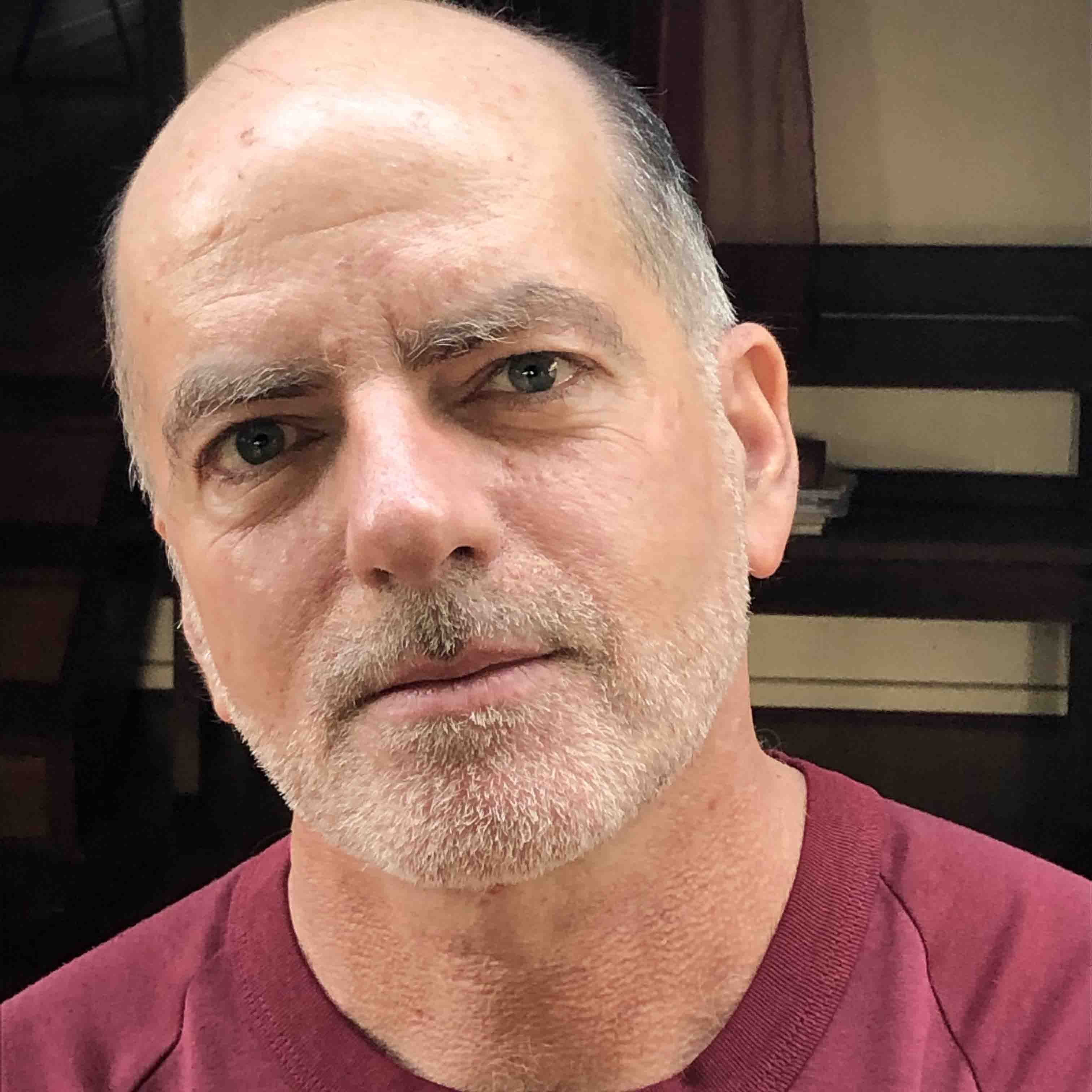 Associate Professor Stephen Carleton
Associate Professor Stephen Carleton
Stephen is the Director of the UQ Centre for Critical and Creative Writing and a Brisbane-based playwright and academic. His plays have been produced across Australia and won awards including the Griffin Theatre Award (2015) for The Turquoise Elephant, the Matilda Award for Best New Australian Play (2017) for Bastard Territory, and the Patrick White Playwrights’ Award (2005) and New Dramatists’ Award (2006) for Constance Drinkwater and the Final Days of Somerset. Those plays and others including musical Joh for PM (2017, with Paul Hodge), and The Narcissist (2007), have been shortlisted for a range of awards including the Patrick White Playwrights’ Award, the Queensland Premier’s Drama Award, Queensland Literary Awards (Drama), and two AWGIEs.
Helen is the Deputy Director of the UQ Centre for Critical and Creative Writing and a Senior Lecturer of Creative Writing at the School of Communication and Arts. She has won the World Fantasy Award, the British Fantasy Award and the Shirley Jackson Award for her two collections of short stories. Her debut novel The Migration released last year argued for the need to remain hopeful, even in the worst circumstances. It was one of The Guardian’s top science fiction books of the year and was recently optioned by Clerkenwell Films.
Chris is an Australian theatre and cultural historian teaching and researching in the Drama program in the School of Communication and Arts, currently working on an ARC DECRA-funded project about the origins of live performance subsidy in Australia between 1949 and 1975. In this work, as in all of his research, Chris is particularly interested in what funded cultural output can tell us about national pre-occupations and anxieties. Along with this historical focus, Chris is working on a book project about contemporary Australian mainstage theatre after the Kevin07 election, as well as the Australian component of a project on the cultural history of the Eurovision Song Contest outside Europe. Chris's teaching responsibilities at UQ include theatre history, performance production, and script analysis. Chris welcomes applications for higher degree research at MPhil or PhD level in any of these areas.
Papers 6: Animal Futures

9.30–11.00am
Chair Richard Newsome
The Writers Studio, Level 6, Michie Building (also available online)
Critiquing Cottagecore: Digital Subcultures and PostColonialisms in the Anthropocene
Presented by Brendan Ellis (in-person)
In the past decade, the online aesthetic subculture of ‘Cottagecore’ has influenced many diverse communities and individuals through its idealised fashions, lifestyles, and aesthetic conceptions; all which centre around privatized romanticisations of a rural (and heavily westernised) agricultural existence. It is notable then, that internet subcultures such as Dark Academia, Fairycore, and Cottagecore are often underrepresented or misrepresented in the academic literature to an incredible degree. For instance, Cottagecore Instagram pages, Tumblr blogs, and Reddit pages frequently amass anywhere between 50,000, 100,000 and 200,000 followers. Such a collective popular following should then not be underestimated, as social media is a medium responsible for a seemingly endless number of written multimedia narratives concerning our contemporary environments. Resultantly, this paper will specifically analyse the subculture of Cottagecore through the lenses of Postcolonialism and the Anthropocene. It will posit whether the Cottagecore movement is fundamentally written as an aesthetic practice that retains the effects and features of colonization, in an era where many individuals seek to escape ‘Armageddon fatigue’ and engage with popular visions of ecological hope and sustainability through digitally curated texts and cultural projections.
Living with Others, Living for Others: Intergenerational and Multispecies Obligations in Yoko Tawada’s The Last Children of Tokyo and James Bradley’s Ghost Species
Presented by Dr Liz Shek-Noble (in-person)
Literature about the Anthropocene is invariably a literature concerned with questions of futurity, reproductive possibility, and survival. As the geological epoch marking humanity’s irreversible influence over the earth’s biospheres through anthropogenic climate change and the despoliation of its natural resources, the Anthropocene constitutes an ethical watershed for living generations with respect to how our own ways of being in the world may impact what is left behind for our descendants. This presentation offers a comparative ecocritical analysis of Yoko Tawada’s The Last Children of Tokyo (2014) and James Bradley’s Ghost Species (2020), particularly in the way they launch an ethics of intergenerational and multispecies responsibility. Following Adeline Johns-Putra’s argument that the figure of the child is used as a “shorthand for the future and […] as a particularly emotive marker of the problem of climate change” (p. 520), I argue that The Last Children of Tokyo and Ghost Species prompt readers to reflect ethically on their obligations towards beings who are both living and not-yet-born, as well as human and non-human. Written in the wake of the 2011 Tōhoku Earthquake and Tsunami, The Last Children of Tokyo draws on current concerns about Japan’s “demographic time bomb” to present a future Japan where children suffer from debilitating illnesses and die prematurely while older people experience exceptional longevity and vitality. Meanwhile, the absence of animals in Tawada’s novel brings into focus how an ethics of multispecies diversity can correct imbalances between human and non-human ecologies brought about by the Anthropocene. When it comes to Ghost Species, the Foundation’s resurrection of the Neanderthal species calls into question established binaries of human/animal, abled/disabled, and nature/nurture. Throughout the novel, Eve is subjected to a taxonomic gaze in which her non-normative physical and behavioural traits are interpreted as an index of her sub- or in-humanity. In Ghost Species, the reverse engineering of extinct species, including but not limited to our hominin cousins, suggests how radical solutions to anthropogenic climate change are necessarily imbricated with eugenic and anthropocentric discourses.
Writing for Performance in the Epoch of Loss
Presented by Dr Jane Woollard and Dr Kit Lazaroo
Dramatic writing is possibly the most stubbornly human-centric of all the arts, depending as it does upon causally related actions of one human upon another – pursuit, seduction, betrayal abandonment and revenge, manifestations of ‘human nature’. Deviate from this and writing for theatre risks becoming abstract, fey, didactic, tedious. In our collaboration since 2000, we have sought nevertheless to imagine the natural animal/vegetable world into this human space in way that are joyous, humorous, beguiling. We were motivated at first to represent Otherness, to fathom the unknowable, but now increasingly we want to grasp the loss of habitat and species occurring all around us, what that means for the human soul, and to protest that loss in itself. Theatrical possibilities in the three-dimensional space provide us with degrees of freedom but then we must creatively resist the pull towards puppetry and pantomime. We have therefore had to struggle with ways of decentring the human from this human art-form and yet still retain a hold on some sense of legitimacy – this is the wicked problem of our craft in these times.
In this paper, we discuss a new work, The Burrow, which continues our work of honouring “our pain for this world” (Macy 2014) . Weaving together the narrative of the loss of a literary (Eurocentric) tradition depicted in Ray Bradbury’s novel Fahrenheit 451, with the loss of habitat experienced by the rabbits of Richard Adam’s novel Watership Down, this play explores writing and literature as a marker that divides us from the animal world and yet seeks to return us to it through evocations of embodied experience. The encounter between Woman (Mildred the book-hating wife of Fahrenheit 451) and Rabbit (Clover the fecund doe from Watership Down) is at once improbable and truthful. At its heart we hope to find the connection between the playfulness of story, the survival of the body, and the possibility of a joint consciousness between human and animal. We continue to grapple with the problem of how to represent such encounters in the theatrical space, because no other story seems so compelling, and because we believe that theatre is something we might put ‘in the netbag for staying with the trouble of our ongoing epoch’ (Harraway 2016).
Papers 7: Digital Storytelling

9.30–11.00am
Chair Dr Alex Bevan
Room 642, Michie Building (also available online)
Solastalgia, co-creative narratives and the pandemic as emotional environmental upheaval
Presented by Dr Elizabeth Heck, Dr Mimi Tsai (in-person)
In early 2020, the COVID-19 pandemic hit, resulting in disruption that included the loss of loved ones, job redundancies and moves to remote schooling. Various state and city lockdowns brought additional impacts of isolation and emotional stress. This research investigates the concept of Solastalgia through the co-creative media practice of digital storytelling. The concept of Solastalgia was developed to provide clarity and to give greater meaning to environmentally induced emotions and distress (Albrecht et al., 2007) such as the COVID-19 pandemic experience.
These collective experiences of the pandemic have been captured under the format of the co-creative media practice of digital storytelling from two public programs. We apply narrative analysis to discuss the emerging themes of pandemic induced doom and fatigue that are contrasted with hope and optimism amid such change and upheaval. The first case study explores the Australian Broadcasting Corporation’s (ABC) Four Corners program special, The Class of 2020. This special involved the participation of a diverse group of senior school students across Australia by documenting their own experiences of the pandemic and their disrupted schooling, as recorded on their mobile phones. The second case study, A Year in The Life of a Pandemic, is a showcase of the highlights of digital storytelling workshops facilitated by StoryCenter, one of the leading digital storytelling organisations based in the United States. These workshops were undertaken during the pandemic with diverse participants who joined globally to share their life experience during this unusual and unsettling period.
The co-creative media practice of digital storytelling is applied as a framework to explore the role of reminiscence and resilience, and how this might contribute to future thinking about the importance of the human story in times of crisis. Early findings suggest individuals may experience a sense of environmental distress and Solastalgia during the pandemic.
REFUGIUM: Reworlding in a hostile future
Presented by Dr Jen Rae and Claire G. Coleman (in-person)
In ecology, organisms stand higher chances of survival in refugia when their external environment is undergoing hostile conditions. In isolation, they reorganise their biological process to increase in numbers or strength until the disturbance abates. They must evolve to survive to gain a possible future.
In our increasingly hostile future, we question What are the conversations that we aren’t having now that might aid us, our loved ones and our future ancestors? What are the skills and knowledges at the thresholds of being forever lost, overlooked or undervalued that our future generations may need for survival? How can speculative fiction decouple maladaptive nihilistic and fundamentalist thinking in the climate emergency? And, what are we willing to give up and/or fight for in the greatest challenge facing humanity? Now is the time for refugia.
This paper reflects upon and weaves together some of the stories emerging from our collaboration on REFUGIUM (2021), an Incinerator award-winning short film of speculative fiction in the climate emergency context, and activities of the Centre for Reworlding. These works are centred on First Nations knowledge systems and protocols, where time and compounding existential crises converge to delve into moral dilemmas of life and death, and where we hone in on child-centred trauma prevention and intergenerational justice in the coming collapse.
You can view REFUGIUM here: https://www.jenraeis.com/refugium-2021
Ursula Biemann’s Video Essays: Reconfiguring Cli-Fi Narratives in Apparatus Performances
Presented by Dr Carol Schwarzmann (in-person)
In the hands of Ursula Biemann, the video essay is a reflexive apparatus attuned to material agencies and discursive ecologies. Biemann’s videos construct a creative, imaginative world for interrogating what Karen Barad has termed “the nature of nature and meaning making”, as well as prefigure Donna Haraway’s call for “art-science activisms”. Since the late 1980s, Biemann has conducted fieldwork on every continent but Antarctica, as filmmaker, curator, theorist, educator, and environmental activist. In her work, she combines new materialist thought, art and science to explore the nature of visual art in present times of global warming and the Anthropocene. She does so, in part, by staging what I have termed apparatus performances of female sci-fi scientists collecting data, setting into motion aesthetic estrangement in an intricate process folding the filmmaker’s perspective onto the spectator’s own.
Biemann’s project is not primarily one of knowledge production. Rather, agency is found within her process as a filmmaker seeking to make a direct contribution to changing configurations of materials, politics, and knowledge. She uses art as “an organising force in the world”.
In the three videos I consider, Subatlantic (11 mins., 2015), Twenty One Percent (18 mins., 2016), and Acoustic Ocean (18 mins., 2018), Biemann puts into expressive form Barad’s treatment of entanglement of lively matter (“agential realism”) with Haraway’s seminal feminist argument for “situated knowledges”. Through my visual and textual analysis, I will show how, over time, Biemann’s critical reflections transform from a stance of negative analysis decrying a present state of affairs, into a positive speculative projection of how we might go forward to make the world we want to live in.
James Bradley

11.30am–1pm
Gallery D, UQ Art Museum (in-person only)
No Direction Home: Extinction, Climate Crisis and Fiction
What is the role of fiction in an age of extinction? Is it to confront? To agitate? To console? Or are its uses more complicated than that? Through a discussion of his novel, Ghost Species, and other recent works, James Bradley suggests fiction may offer new ways of thinking about environmental crisis.
 About
About
James Bradley is a writer and critic. His books include the novels Wrack, The Deep Field, The Resurrectionist and Clade, a book of poetry, Paper Nautilus, and The Penguin Book of the Ocean. He also writes and reviews for a range of Australian and international publications such as The Guardian, The Monthly, Meanjin and Griffith Review. His fiction has won or been shortlisted for a number of Australian and international literary awards, and he has been shortlisted twice for the Bragg Prize for Science Writing and nominated for a Walkley Award, as well as winning the 2012 Pascall Award for Australia’s Critic of the Year. He is currently an Honorary Associate at the Sydney Environment Institute, and his latest novel is Ghost Species.
Papers 8: Speculative Fictions

2–3.30pm
Chair A/Prof Anna Johnston
The Writers Studio, Level 6, Michie Building (also available online)
Mutability and Entanglement in Jeff Vandermeer’s Southern Reach Trilogy
Presented by Dr Jennifer Clement and Dr Karin Selberg (in-person)
Descriptions of global warming often call it a ‘wicked problem’, a phrase which acknowledges the difficulties or indeed impossibilities of ever solving it. Nonetheless, the problem-solution language that even a wicked problem approach uses, suggests that solutions remain within the agency of human beings and reify the humanism inherent in what has been called the Anthropocene.
Our paper for this symposium takes the form of a dialogue surrounding Jeff Vandermeer’s Southern Reach trilogy (2014). We will explore the various means by which these novels problematise the boundaries of human-centred notions of agency or control over physical reality, to form what Karen Barad calls an ‘agential realism’, where agency is a shared concept, developed in engagements with living and non-living matter. Vandermeer’s novels present a reality of mutability and flux, not unlike the transformative world of Ovid’s Metamorphosis. Both Ovid and Vandermeer share a concern with human vulnerability and sensual as well as material porousness, and the transformations they explore emerge out of relationships and affective encounters between various beings, objects and environments. Ontology becomes a matter of fusion, mutation and change.
We will argue that Vandermeer and Ovid present us with a means of critiquing the notion that human agency as in any way capable of an adequate response, let alone a solution, to global warming and to humanity’s general degradation of the planet. We will suggest that these texts may help us problematise the assumed stability and separability of agents, environments and events in the problem-focused rhetoric surrounding these issues.
“Unsettled Thylacines and Gothic Possibilities in Contemporary Australian Literature”
Presented by Samantha Schraag (in-person)
Thylacinus cynocephalus, commonly known as the thylacine or Tasmanian tiger, was a carnivorous marsupial hunted to extinction by the late 1930s. With a striped coat, rear-facing abdominal pouch, and coughing bark, the thylacine eluded classification in ways that emulated its spectral presence at the fringes of European settlement in lutruwita / Tasmania. Its history is bound up in the colonial transformation of Australian environments, and its ghost haunts us still in cryptid-like sightings, branding, and narratives, and as a symbol of ecological loss. Many Australian novels like Julia Leigh’s The Hunter (1999), Sonya Hartnett’s Stripes of the Sidestep Wolf (1999), and Louis Nowra’s Into That Forest (2012) emphasise the animal’s historicity and extinction. Sarah Kanake’s Sing Fox to Me (2016) and Krissy Kneen’s Wintering (2018), however, mark an interesting turn in the representation of thylacines. Their novels feature hybridised human-thylacines in haunted environments, engaging with the entangled contexts of Australia’s colonisation and Anthropogenic ecological disruptions.
Taking transformative representations as its focus, this paper considers the unsettled position of the thylacine figure in contemporary Australian literature. With reference to Ken Gelder and Jane Jacobs’ theories of the Australian uncanny and ‘unsettled settledness’, it examines how Kanake, Kneen, and others leverage the possibilities of the Gothic mode to push against boundaries of humanity, animality, genre, and history. Gelder and Jacobs, and others, demonstrate how ghost narratives function as sites for negotiating the dispossession experienced by First Nations peoples and the haunted anxieties of belonging felt by settler-Australians. This paper argues that transforming thylacine narratives can be imagined as similarly transgressive sites, where the animal is at once extinct, resurrected, and representationally unstable.
Papers 9: Affect in the Anthropocene 2

2–3.30pm
Chair A/Prof Stephen Carleton
Room 642, Michie Building (also available online)
AUSTRALIAN ECO-FICTION – MOVING BEYOND THE ‘OBLIGATORY NOTE’ TO TRANSFORMATIVE HOPE
Presented by Donna Cameron (in-person)
Jenny Offill coined the phrase, ‘the obligatory note of hope’ to describe the ubiquitous glimmer of hopefulness at the end of dire narratives around anthropogenic climate change. In the Australian eco-fiction landscape, there are a plethora of books containing this ‘obligatory note,’ brilliant and important clarion calls, such as Wolfe Island, The Glad Shout, Ghost Species, and The Mother Fault. Doctor Elin Kelsey argues that our continual focus on climate doom is ‘fuelling an epidemic of eco-anxiety…’ She claims that hope is critical in solving the environmental crises. Is it possible to write contemporary realist eco-fiction that moves beyond a gleam of hope into a sunny, solid reality? I have spent the last four years writing my way towards hope in the guise of a literary love story/chase thriller, and encountered several ‘wicked problems’ during this journey - 1) The contemporary realist novel needs to be continually adaptable and responsive to the rapidly changing world, science and consequent levels of hope. 2) There is no room for activism in fiction, the activism is contained within the act of writing. 3) To remain in the realm of believable acceptability, one needs to walk a treacherous line between hope and the unfolding reality. 4) Without hope, we are doomed (or the importance of Leonard Cohen and the magic of fungi). 5) The problem of publication in an industry wary of eco-fiction because of a perceived reader’s fatigue.
It was possible to write a novel through an anthropogenic climate change lens with hope at the beating heart, but only because my fictional characters evolved to embrace a ‘hopepunk’ mentality – a term invented by Alexandra Rowland in 2017, which means to maintain hope, against all odds.
Key words: Eco-fiction. Obligatory note. Doom. Grief. Rapid change. Activism. Leonard Cohen. Fungi. Reader’s fatigue. Hopepunk.
Connoisseurs of Chaos: Writing ‘Night Shortening’, an eco-themed large cast script for young people
Presented by Dr David Megaritty (in-person)
Long ago, a group of children known as the Youngers were transported away from a burning land in a big boat. Yet when their vessel hit a storm, its captain and crew abandoned them. The ship’s musicians saved them, leaving them in a tilted theatre. The boat sank, bow down and stayed that way. Older now, the Youngers survive in the upturned stern protruding from a featureless sea, celebrating their survival with a solstice ritual they call the Night Shortening. But does this seriously fun ritual celebrate certainties, or construct them?
Night Shortening is about how performance shapes the world. It combines storytelling, ritual, performing objects, song, the lies we fill theatres with to perform its analogy for power, ecology and intergenerational suspicion.
Night Shortening is deliberately playful with post-apocalyptic literary clichés of Young Adult Fiction so as to not fall into the anaesthetic Susan Sontag identifies when she says, “sci fi disaster stories have the dual purposes of distracting us from imminent catastrophic danger and making us psychologically numb to that danger”
But young people know the story. They aren’t the supernumeraries of our planet’s future – they should be its authors. Storymaking, as Frank Kermode points out, is a survival mechanism: “it is not that we are connoisseurs of chaos, but that we are surrounded by it, and equipped for coexistence with it only by our fictive powers”.
What strategies can be employed to explore these themes and forms in writing a play that knows it’s a performance? How might Night Shortening, a playful, musical and inventive hopepunk work for young people take us somewhere else in order to bring us right back to where we are?
In this presentation, an award-winning playwright outlines aesthetic devices employed in writing a new script for a large cast of young people.
Laura Jean McKay

4pm–4.45pm
The Writers Studio, Level 6, Michie Building (also available online)
Join Victorian Premier’s Literary Award-winning author Laura Jean McKay in conversation with Associate Professor Stephen Carleton, as they discuss McKay’s break-away international hit novel, The Animals in that Country. The novel is an eerily prescient, magical realist riff on pandemic living, where humans and animals have been gifted the ability to communicate through language. Carleton will chat with McKay about writing landscape in climate-ravaged times, the poetics of inter-species communication, and the vicissitudes of releasing a debut speculative fiction novel during lockdown.
Laura Jean McKay is an Australian author and creative writing lecturer who hails from the Gippsland region of Victoria, and has arrived in Brisbane via stints in Melbourne, Cambodia and at Massey University in New Zealand. She is the winner of the Victorian Premier’s Literary Prize for Fiction and the prestigious international Arthur C. Clarke Award for science fiction.
Stephen Carleton is the Director of the Centre for Critical and Creative Writing at UQ, and a the winner of the Patrick White Playwrights Award and Griffin Award for new Australian plays. He teaches playwriting, Australian drama and theatre historiography in the School of Communication and Arts at UQ.
Garry and Anne Charnock with Dr Helen Marshall

5–6pm
The Writers Studio, Level 6, Michie Building (also available online)
They will be discussing the 'Ashton Hayes Going Carbon Neutral Project' started in 2005 in which they encouraged their local community to try to become England's first carbon neutral village. The conversation will bring together strands on climate activism, journalism and its overlap with creative writing.
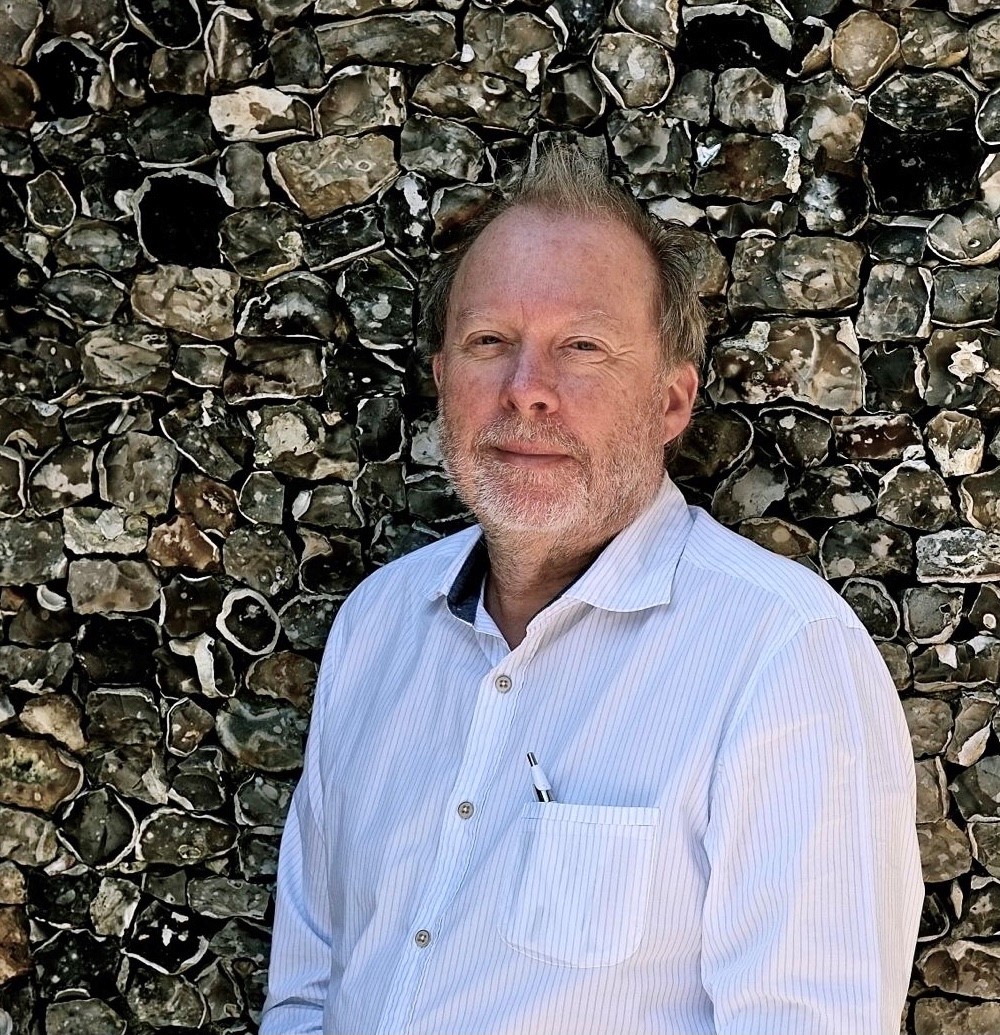 About
About
Garry Charnock is the instigator of the Ashton Hayes Going Carbon Neutral Project — a community-led initiative that is helping this small Cheshire community to become England's first carbon neutral village.
The project has attracted wide support from the local community, businesses and media. The village has links with hundreds of like-minded communities around the globe and has featured in the Live Earth rock concert, the Financial Times, New York Times and other TV, radio and news media worldwide. Through behaviour change and the setting up a community-owned energy company, the village residents have cut their carbon footprint by almost 50% since Garry started the initiative in 2006.
In April 2022, he was awarded an Honorary Doctorate of Science by the University of Chester for his work on engaging communities in climate change action.
More information on www.goingcarboneneutral.co.uk
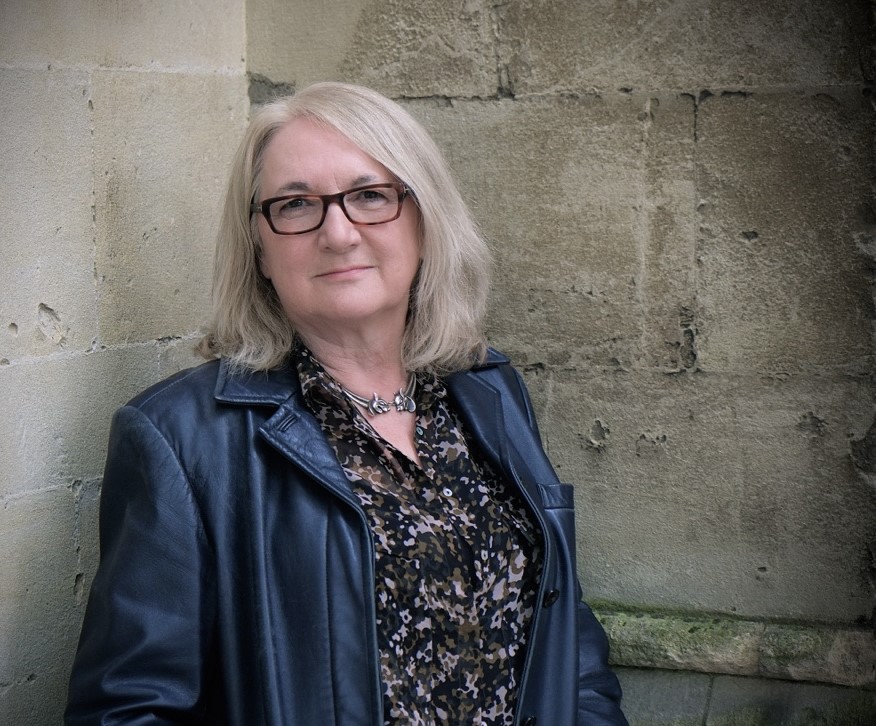 About
About
Anne Charnock's writing career began in journalism and her reports appeared in New Scientist, The Guardian, International Herald Tribune and Geographical.
Her latest novel, Bridge 108, is written in the same world as her debut A Calculated Life, which was shortlisted for the 2013 Philip K. Dick Award and The Kitschies Debut Novel Award. These novels are written against a backdrop of climate catastrophe and imagine a future where drought and wildfires prompt an exodus from southern Europe.
Her novel Dreams Before the Start of Time considers the future of pregnancy and won the Arthur C Clarke Award 2018. Her novella, The Enclave, won the BSFA Award 2017. Anne was educated at the University of East Anglia where she studied Environmental Sciences, and at The Manchester School of Art where she gained a MA in Fine Art.
More information on http://www.annecharnock.com or http://www.twitter.com/annecharnock

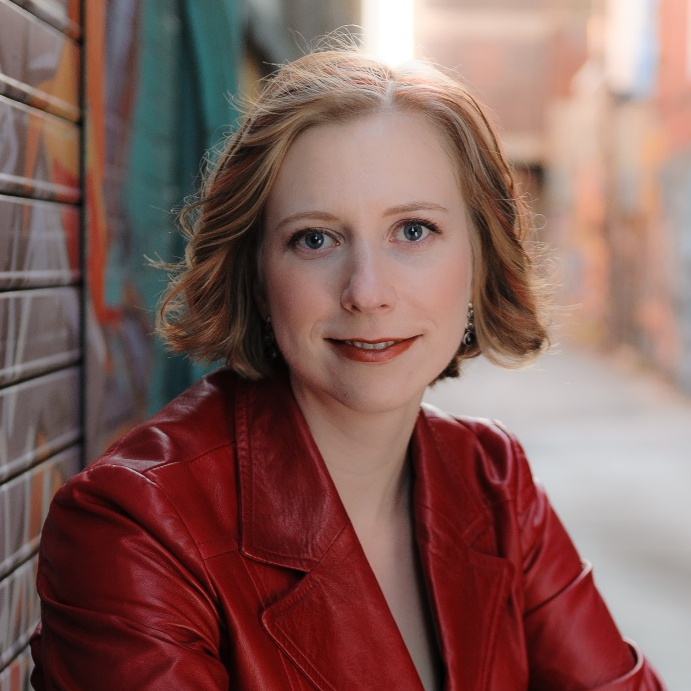 Dr Helen Marshall
Dr Helen Marshall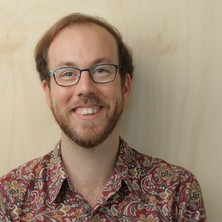 Dr Chris Hay
Dr Chris Hay